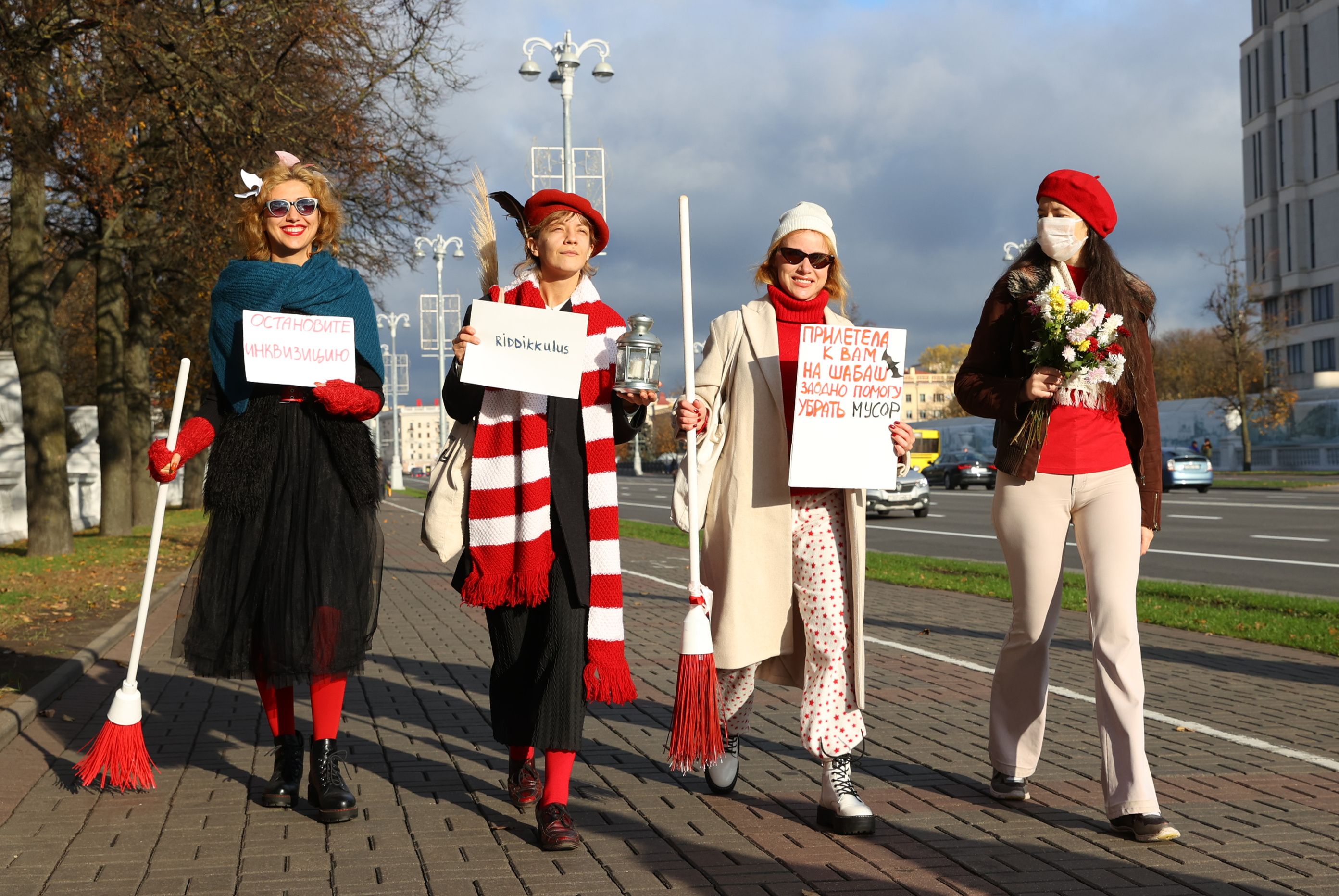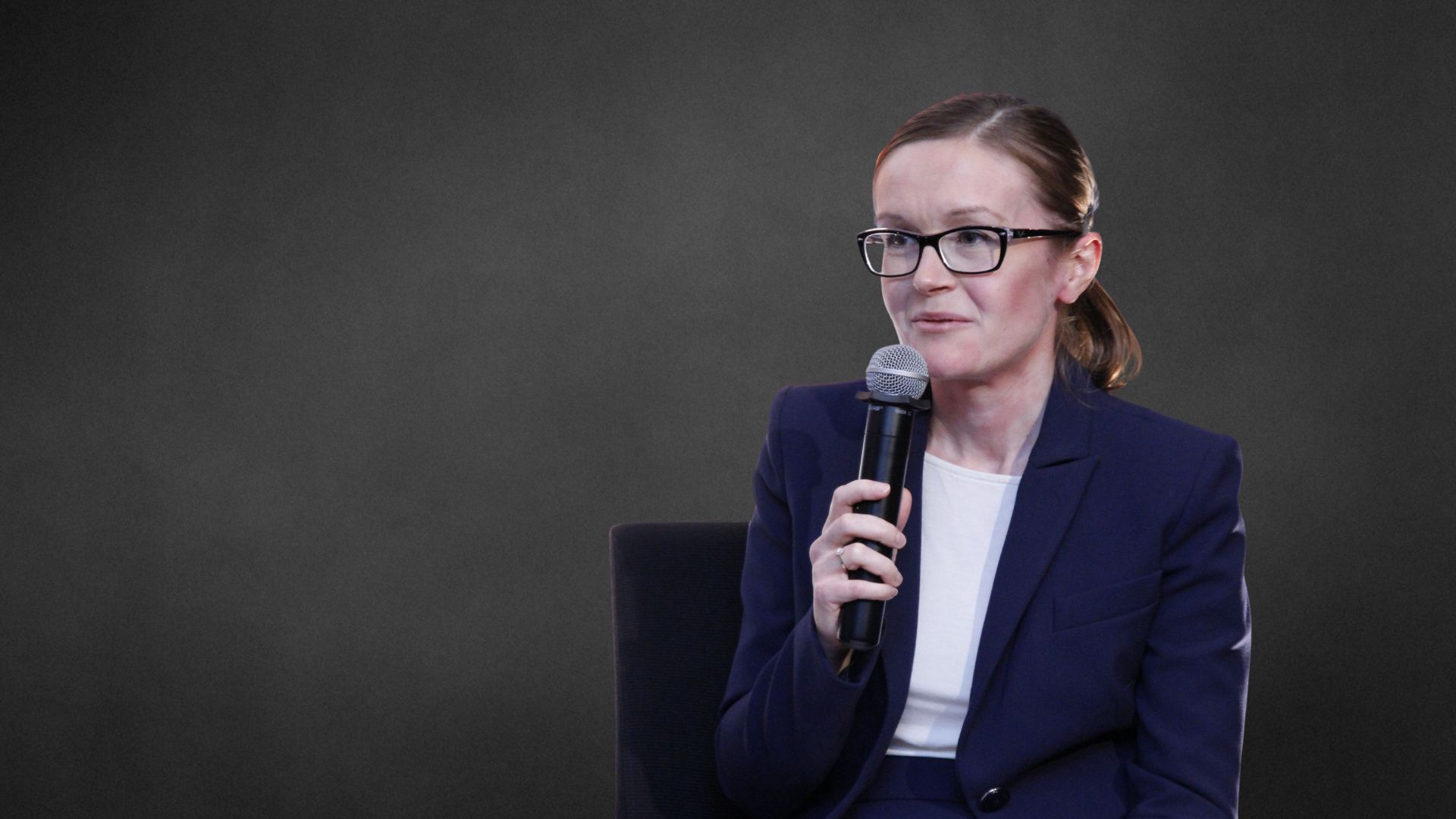EU Aid to Belarusian Civil Society: Needs and Challenges

After the improvement of relations with Alexander Lukashenka’s regime in 2016, the EU pursued a policy of critical engagement towards Belarus. This implied the development of cooperation with the central authorities and parallel support of the non-governmental sector. This approach did not lead to major changes that improved the situation of civil society, and the current political crisis has forced the EU to revise this policy. According to the conclusions on Belarus adopted by the Foreign Affairs Council on 12 October, the EU will increase its assistance to Belarusian civil society by shifting funds so far available to the central administration to areas of cooperation that serve civil society or are in the EU’s interest (e.g., nuclear safety, education). Belarusian institutions responsible for violence or human rights violations will be excluded from assistance. The EU also presented an economic aid plan for a democratic Belarus.
EU Aid: Goals, Distribution, and Limitations
Since 2016, the Union’s aim in supporting Belarusian civil society has been to promote the implementation of basic human rights and the development of local NGOs and people-to-people contacts with the EU, as well as to increase the participation of the non-governmental sector in the decision-making process and build its partnership with local authorities. The largest funds came from the European Neighbourhood Instrument, the European Endowment for Democracy (EED) and EU regional and global instruments (Table 1).
In terms of EU aid distribution (€105 million) in Belarus in 2016-2019, the EU’s priority was support of central and local authorities, and to a lesser extent non-governmental circles (Table 2). Projects related to cooperation with the Belarusian central administration, for example, in the field of migration policy and border management, or economic reforms, accounted for 40.5% of aid, and 38% for regional development and cross-border cooperation. In the scope of this sectoral cooperation, the EU supported NGOs indirectly by subsidising their projects in partnership mainly with Belarusian local authorities. The non-governmental sector was directly supported in projects worth 9% of the aid, and mobility and people-to-people contacts, 10%. Few of the supported projects concerned strengthening local NGOs, and the majority of them oscillated around several hundred thousand euro and were managed by large non-governmental and international organisations.
The challenge in supporting NGOs was the EU’s compliance since 2016 with the Belarusian authorities’ restrictive law on the registration of foreign aid. This increased the transparency of the beneficiaries’ activities but led to delays and refusals in the registration of grants, for example, the EC programme to increase the participation of citizens in the decision-making process and building partnerships between citizens and the authorities (€10 million in 2017). According to Belarusian NGOs, the EU following the requirement of official registration led to funding of GONGOs (government-related organisations), which were the only groups that could obtain registration approval. Moreover, the EU’s desire to maintain proper relations with the state authorities reduced its credibility as a donor of aid for the non-governmental sector. On the NGO side, a barrier was the lack of ability or experience of many local organisations to implement such large subsidies and the unfavourable legal environment regarding the functioning of NGOs and independent media.
Areas of Support Needed
The key issue for the EU currently is aid for civic groups involved in the protests. Although leading NGOs supported by international aid, such as Viasna, have joined the protest movement, the protests are generally initiated by informally organised activists. They come from various backgrounds, for instance seniors, students, women’s organisations, independent trade unions, housing associations, regional newspapers, the IT sector, or particular professions (e.g., doctors, employees of state media). Many of them successfully organise fundraising activities among Belarusians and do not want to use international aid in order to not have their activities discredited. In the long run, these groups may either weaken or become professional, and when the protests are over, they will need external support for their development.
The scale of the regime’s violence has resulted in an increased need for support for repressed people and independent media. According to Viasna’s data, at the end of October more than 700 people had been subject to criminal proceedings with most of them having been in detention (101 people were still political prisoners). Financial resources are not only needed for paying the costs of compensation and lawsuits but also to cover the long-term maintenance costs of these people and their families so they can find a new job (the regime blocks such opportunities). The need for psychological help for victims of repression is significant due to the kind of violence used in prisons against detainees (torture, sexual violence, severe intimidation). Support is also needed for the day-to-day operation of independent media, such as the purchase of new equipment due to confiscation of assets by the authorities, or coverage of employee salaries, as well as for the implementation of training on the development of organisational skills for newly established entities.
Planned Changes
The EC will update and increase the aid package for Belarusian society, which launched in August. Some projects have already been implemented but the list of beneficiaries is confidential to ensure their safety. The EC will increase support for repressed people, including legal, medical, psychological and case documentation assistance, as well as aid for strengthening independent media and digital markets (so far €3.7 million). Moreover, it plans to reshape assistance to combat COVID-19 (€50 million). It will finance initiatives related to the professionalisation of civic activity, trade unions, and the development of digital tools that will improve coordination and increase the security of citizens’ actions. Projects are to be carried out through larger NGOs which will make grants to smaller organisations locally and through the EED. EU institutions will probably return to financing projects outside the territory of Belarus, which was used in periods of deteriorating relations with the regime. The EC is also working on support programmes for youth, education, SMEs, and the health sector, as well as communication on aid offered by the EU and its Member States in Belarus.
Conclusions
The EC’s activities are aimed in the right direction when it comes to the choice of support areas for the non-governmental sector and the method delivery. The challenge will be to effectively distribute aid locally because of the need to reach new and informal civic groups and the Commission’s limited experience in financing bottom-up initiatives. The distribution of aid will be hampered by the regime’s increased restrictions on activists and by the limited people-to-people contacts between the EU and Belarus due to the COVID-19 sanitary regime.
To overcome these problems, the EC may invite representatives of Belarusian umbrella organisations to consult the assumptions of the local action programmes (e.g., online via the EU delegation in Minsk). It is worth becoming acquainted with the solutions used by other aid donors, such as programmes financed from U.S. funds or the Member States. The EC should significantly increase the financing of EED activities in Belarus, due to its flexibility and speed in funding the activities of citizens. Funds can be obtained by stopping cooperation with the vast majority of Belarusian ministries.
For Poland, in cooperation with donor countries in this area (e.g., the Netherlands, Lithuania, Germany, Sweden), it will be important to ensure the effectiveness of the EU aid implementation. This can be achieved through a better exchange of experiences between the Member States and the EC regarding funding bottom-up initiatives and the coordination of activities regarding the catalogue of supported organisations and the aid programming cycle.
Table 1. The Most Important EU Instruments (regional and global) for the Development of Civil Society
in 2016–2019
|
Instrument |
Areas of support |
|
Bilateral assistance programmes financed by the European Neighbourhood Instrument |
In 2016–2019, the EC planned cooperation programmes worth €122.7 million. More than half of all bilateral aid (€65.4 million) was aimed at supporting regional development and the private sector, and one-fifth (€23 million) was planned for sectoral cooperation with the Belarusian central administration, e.g., in the field of migration and economic reforms. The EC planned €34.3 million (28%) for civil-society programmes to be implemented mainly by international organisations. They concerned the improvement of cooperation mechanisms between the authorities and NGOs and legislation in the area of fundamental rights (€14.4 million), increasing people-to-people contacts (€12.3 million) and strengthening the non-governmental sector and independent media (€7.6 million). |
|
European Instrument of Democracy and Human Rights |
Assistance to human rights defenders in Belarus (about €1 million granted, no information publicly available to ensure the safety of the beneficiaries), development of independent media and the non-governmental sector. It is possible for unregistered entities and those operating outside the home state to receive funding. |
|
Development Cooperation Instrument: NGOs scheme |
Development of the non-governmental sector. |
|
European Endowment for Democracy |
Remaining outside EU structures, the EED flexibly and quickly finances projects in Belarus related to independent media, art and culture, grassroots initiatives, and new forms of civic activity, and civic and political pluralism. However, data on the supported projects are confidential to ensure the safety of the beneficiaries. |
|
Erasmus + |
Increasing people-to-people contacts (student exchanges) and strengthening educational institutions. |
|
Multilateral cooperation of the EaP (e.g., the Civil Society Facility Instrument) |
Development of the non-governmental sector. |
Source: PISM, author’s compilation, 2020.
Table 2. Summary of the Distribution of EU Financial Aid in Belarus (subsidies, tenders) in 2016–2019
|
Thematic area |
Value |
% of total aid |
|
Type of beneficiary |
Value |
% of total aid |
|
Cross-border cooperation |
21.10 |
20.10 |
|
NGOs |
14.11 |
13.44 |
|
Regional development |
19.25 |
18.33 |
|
State educational institutions and research institutes |
10.46 |
9.96 |
|
Sectoral cooperation and reforms at the central level |
42.51 |
40.50 |
|
Private companies |
5.84 |
5.56 |
|
Mobility and people-to-people contacts / education |
10.63 |
10.13 |
|
Local authorities |
25.35 |
24.15 |
|
Scientific cooperation |
2.07 |
1.97 |
|
Private entity |
0.47 |
0.45 |
|
Development of the non-governmental sector / human rights |
9.42 |
8.97 |
|
Central administration |
13.02 |
12.40 |
|
Total |
104.98 |
100.00 |
|
Hospitals |
9.09 |
8.66 |
|
|
|
|
|
International organisations and consulting companies |
26.65 |
25.38 |
|
|
|
|
|
Total |
104.98 |
100 |
The list does not include projects implemented by the European Investment Bank.
Source: Author’s compilation, based on data from the Financial Transparency System and Projects funded by the European Union in Belarus, 2020.


